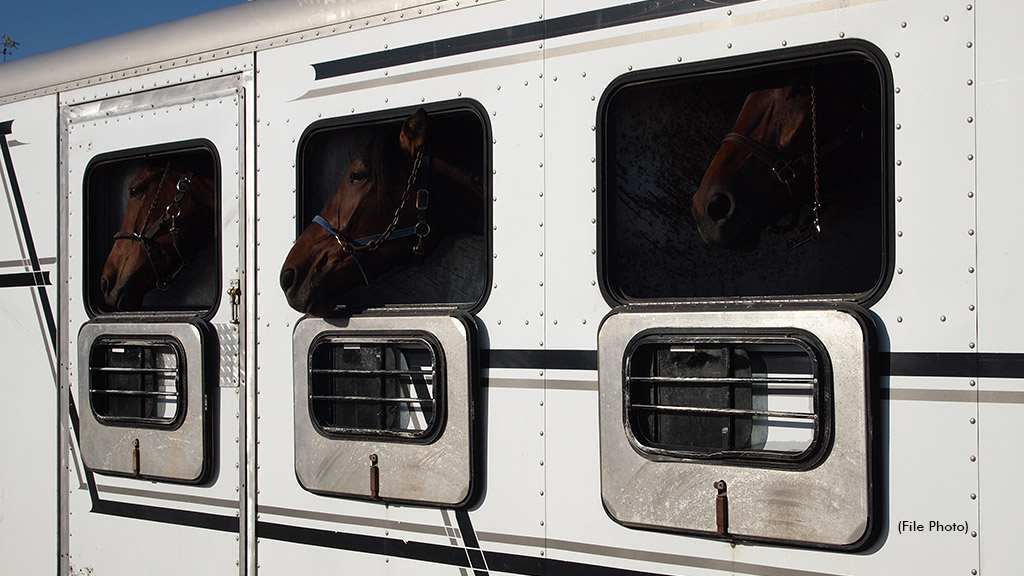
“A very near-accident with my horse trailer was a wake-up call for me,” said Gayle Ecker, Director of Equine Guelph. “It showed me clearly that I didn't know what I didn't know about safety while trailering a horse! Hearing similar stories from others prompted me to propose this course to my team and all agreed we could do something to help.”
Equine Guelph, with funding from the governments of Canada and Ontario through the Canadian Agricultural Partnership (The Partnership), has developed resource information sheets and a video to help would-be transporters and experienced haulers alike navigate different hitch systems, understand what the different ratings mean, and perform a thorough pre-trip inspection.
“By adding important safety resources to its current programming, Equine Guelph is setting an example for high standards in safe animal handling and transportation practices,” said Marie-Claude Bibeau, Minister of Agriculture and Agri-Food. “Our investment in this project is helping Canada’s competitive equine industry.”
“Preparing to haul animals is something that everyone should take seriously,” said Lisa Thompson, Minister of Agriculture, Food and Rural Affairs. “Whether you are travelling with horses, or other livestock, proper safety measures and taking care of your equipment can help ensure you get to your destination safely. By investing in resources that promote safe shipping methods, we will be able to help horse owners and farmers alike be as prepared as they can for whatever they might face on their journey.”
A common horse trailering mistake is attempting to tow too much weight with a vehicle that is not up to the task. In the first information sheet, "Trailering Safely: Decoding the Letters and Numbers," the “alphabet soup” of letters and numbers used to rate components of the truck, trailer and hitch system (Canada as of 2022) are looked at in detail. By the end of this information sheet, deciphering Vehicle Information Decals will be a far less daunting endeavour.
The next information sheet, "Horse Trailering Safety: Part 2—Hitch Systems," explains trailer hitch systems, safety chains, the breakaway systems and trailer brake controllers. Your hitch system will only be as strong as its weakest link, so it is of paramount importance that all the components are functioning properly and are the correct weight rating. The function of draw bars will be explained as well as choosing the correct ball and coupler for your set up. Then the correct way to hook up safety chains and how to set the output and sensitivity on the trailer brake controller will be covered to avoid trailer wheels locking up and skidding. No one wants tire damage or a rough ride for their precious cargo.
Finally, a superb video covers all the bases for a pre-trip inspection from checking tire pressure to making certain the trailer is towing nice and level. In 10 minutes, this informative video covers what to check in terms of tires, lug nuts, hitch, lights and brakes. You will marvel at the rarely seen perspective of a set of trailer tires travelling down the road. It’s going to send you to the store wanting to pick up a lug nut wrench if you don’t already have one! No safety component will go unchecked, from safety chains to break away cables, and you will have all the tools needed to set yourself up for a smooth ride.
OMAFRA is providing funding to Workplace Safety & Prevention Services to deliver resources and consulting services to help farmers and other agri-food businesses provide safe workplaces.
The Canadian Agricultural Partnership is a five-year, $3-billion commitment by Canada's federal, provincial and territorial governments that supports Canada's agri-food and agri-products sectors. This includes a $2-billion commitment that is cost-shared 60 per cent federally and 40 per cent provincially/territorially for programs that are designed and delivered by provinces and territories.
Equine Guelph thanks Beverly Sheremeto and Robert Nagle, Firefighters and horse owners, B & R’s Northern Horse Journey (YouTube), for their contributions to the development of these resources.
Equine Guelph is also offering an upcoming "Horse Trailer Safety" online course on TheHorsePortal.ca.
Thanks to Equine Guelph’s generous safety education supporter, Workplace Safety & Prevention Services, this online resource in safe trailering has been made possible.
(With files from Equine Guelph)

